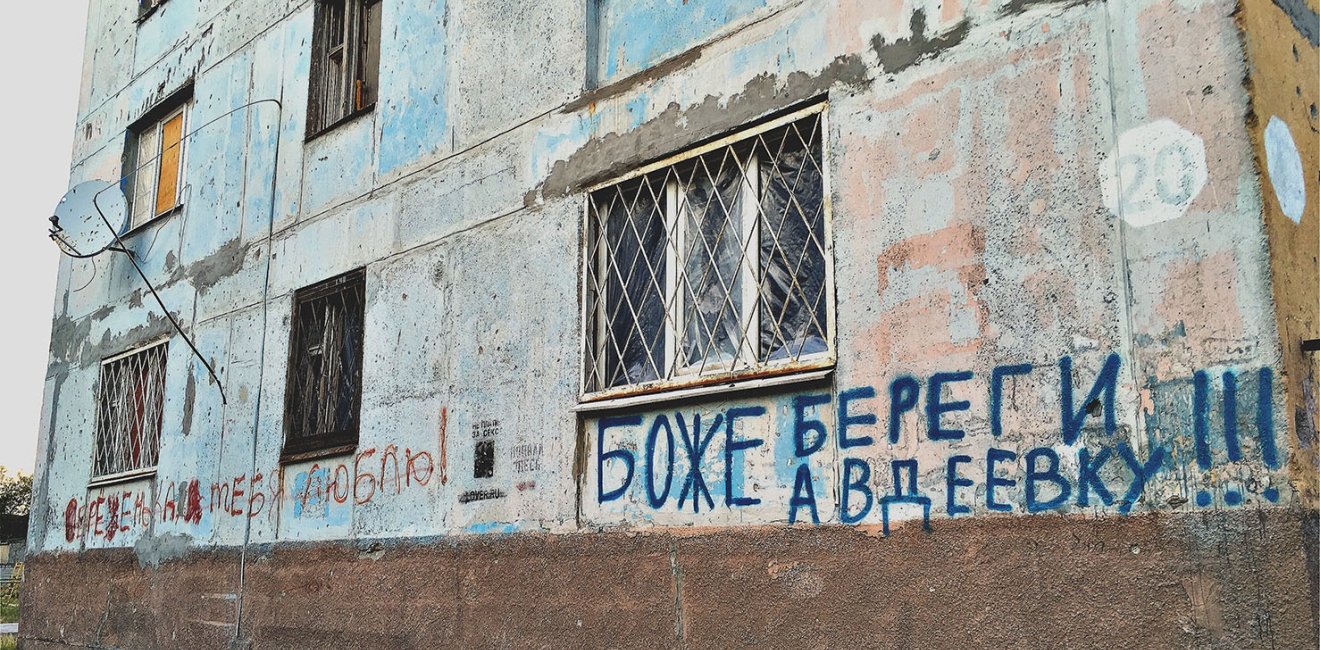
A blog of the Kennan Institute
In an earlier piece we discussed how Ukrainians living in front-line areas, the great majority of whom are Russian speakers, see their own nation and how they perceive Russia and Russian citizens. This blog addresses their opinions regarding war and a path to victory and peace.
Our research in 2022 showed that Ukrainians living at the front were torn when faced with the real life-or-death dilemmas of this war but that they overwhelmingly rejected territorial concessions in return for peace. We also found generational differences in perceptions: younger Ukrainians were more optimistic about taking back all Ukrainian territories, while the older generations showed a stronger readiness for negotiation. A repeated survey of 500 individuals from this group (305 internally displaced persons, 195 local residents) in April 2023 revealed what this distinctive group of Ukrainians think about the war, victory, and a path to peace after fourteen months of war.
Against Seeking a Ceasefire, with a Big Exception
After fourteen months of war, Ukrainians living in front-line areas were less inclined to favor negotiations with Russia over a complete ceasefire than in July 2022. While 46 percent backed such negotiations in July 2022, only 23 percent of the smaller sample in April 2023 supported negotiations.
However, how questions are framed makes a huge difference. The key wartime dilemma we identified in the 2022 survey was that between saving lives and fighting until all of Ukraine’s territories were reclaimed. We tested two different ways of framing this dilemma, one that prompted respondents to think about the future and saving lives, the second to think about the past and lives lost.
Attitudes toward a ceasefire changed dramatically when we used the first frame: 63 percent of respondents strongly agreed with the statement that it is imperative to seek a ceasefire to stop Russians from killing Ukraine's young men as the future of the nation. Agreement was slightly higher among IDPs than among residents of the three cities. Only 20 percent disagreed. It is a significant change from the results of our survey conducted in July 2022, when 46 percent agreed but 36 percent disagreed with the same statement.
Sacrifices and the Loss of Loved Ones Increase People’s Willingness to Fight
The second prompt foregrounded the sacrifices of Ukrainian soldiers. In response to the statement “Because of the sacrifices of Ukrainian soldiers during this war, it is more important than ever that Ukraine never concede any territory to Russia,” 82 percent of respondents strongly agreed and 11 percent somewhat agreed. These views are very similar to positions expressed in July 2022. Research shows that making meaning of loss helps in coping with the trauma of war.
We also presented the choice of (1) continuing the war until Ukraine won or (2) starting negotiation on an immediate ceasefire, while asking people to think about the loss of people they love and know. The majority of respondents (54 percent) supported the idea of continuing the war, while only 16 percent saw starting an immediate ceasefire negotiation as critical.
Belief in a Just War Increases Support for Continued Fighting
The majority of respondents were optimistic about the victory of Ukraine in the war: 57 percent were very optimistic and 31 percent were mostly optimistic, while only 6 percent had a pessimistic view. The percentage of people believing in victory significantly increased when we asked how confident they were that Ukraine would win because justice was on its side: 82 percent strongly agreed with this statement and 15 percent somewhat agreed. Fewer than 2 percent had doubts about a Ukrainian victory with this prompt. Indeed, the majority (66 percent) of Ukrainians living at the front believe that the war is just and extremely important because Ukraine is fighting for its freedom and for the freedom of Europe. Only 13 percent saw this war as meaningless and bringing so much tragedy down on Ukrainians.
Conclusion
Ukraine’s recent counteroffensive success against Russian troops has raised hopes for Ukraine’s eventual victory. However, Ukraine’s battlefield gains come at the heavy price of the loss of life among soldiers and civilians. Our research shows that through months of the war, optimism about victory among Ukrainians living in front-line areas remains high. Our sample is not nationally representative, but it is indicative of sentiment near the fighting. It reveals that the Ukrainian people, those displaced by the war and those not, remain strongly supportive of their military and the wartime efforts to achieve victory against Russia.
This research was supported by National Science Foundation award number 2226741.
The opinions expressed in this article are those solely of the author and do not reflect the views of the Kennan Institute.
Authors

Professor and Director, Program on History, Memory, and Conflict, Carter School for Peace and Conflict Resolution, George Mason University


Kennan Institute
The Kennan Institute is the premier US center for advanced research on Eurasia and the oldest and largest regional program at the Woodrow Wilson International Center for Scholars. The Kennan Institute is committed to improving American understanding of Russia, Ukraine, Central Asia, the South Caucasus, and the surrounding region through research and exchange. Read more

Explore More in Focus Ukraine
Browse Focus Ukraine
Talking to the Dead to Heal the Living

Ukrainian Issue in Polish Elections


